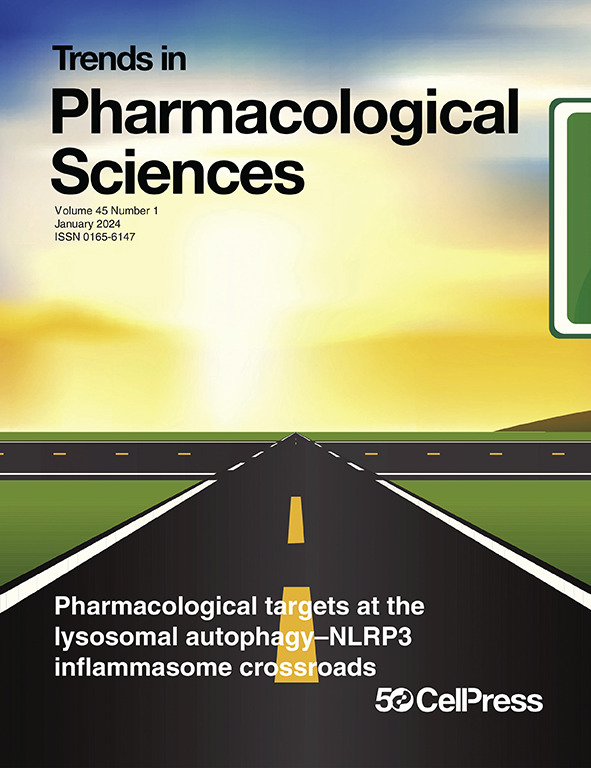用 Itk 平衡免疫激活。
IF 19.9
1区 医学
Q1 PHARMACOLOGY & PHARMACY
Trends in pharmacological sciences
Pub Date : 2024-11-01
Epub Date: 2024-10-02
DOI:10.1016/j.tips.2024.09.005
引用次数: 0
摘要
保护性免疫反应的发展依赖于促炎性 CD4 T 辅助(Th)细胞群(如 Th17 细胞)和抑制免疫激活的调节性 CD4 T 细胞(Tregs)之间的平衡。有证据表明,白细胞介素-2诱导的T细胞激酶(Itk)可调节这种平衡,这为抑制Itk的治疗应用提供了支持。本文章由计算机程序翻译,如有差异,请以英文原文为准。
Balancing immune activation with Itk.
Development of protective immune responses relies on a balance between proinflammatory CD4 T helper (Th) cell populations such as Th17 cells and regulatory CD4 T cells (Tregs) that keep immune activation in check. Evidence that interleukin-2-inducible T cell kinase (Itk) regulates this balance supports therapeutic applications for Itk inhibition.
求助全文
通过发布文献求助,成功后即可免费获取论文全文。
去求助
来源期刊
CiteScore
23.90
自引率
0.70%
发文量
132
审稿时长
6-12 weeks
期刊介绍:
Trends in Pharmacological Sciences (TIPS) is a monthly peer-reviewed reviews journal that focuses on a wide range of topics in pharmacology, pharmacy, pharmaceutics, and toxicology. Launched in 1979, TIPS publishes concise articles discussing the latest advancements in pharmacology and therapeutics research.
The journal encourages submissions that align with its core themes while also being open to articles on the biopharma regulatory landscape, science policy and regulation, and bioethics.
Each issue of TIPS provides a platform for experts to share their insights and perspectives on the most exciting developments in the field. Through rigorous peer review, the journal ensures the quality and reliability of published articles.
Authors are invited to contribute articles that contribute to the understanding of pharmacology and its applications in various domains. Whether it's exploring innovative drug therapies or discussing the ethical considerations of pharmaceutical research, TIPS provides a valuable resource for researchers, practitioners, and policymakers in the pharmacological sciences.

 求助内容:
求助内容: 应助结果提醒方式:
应助结果提醒方式:


